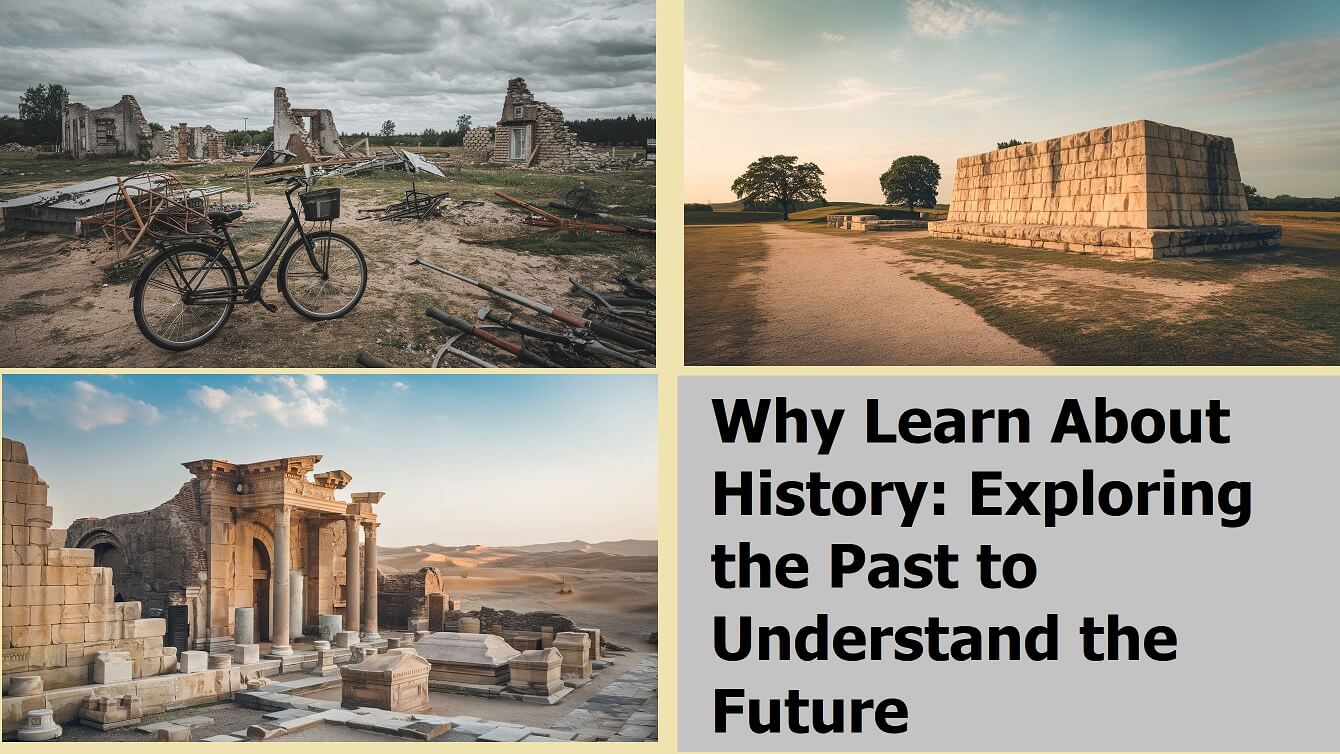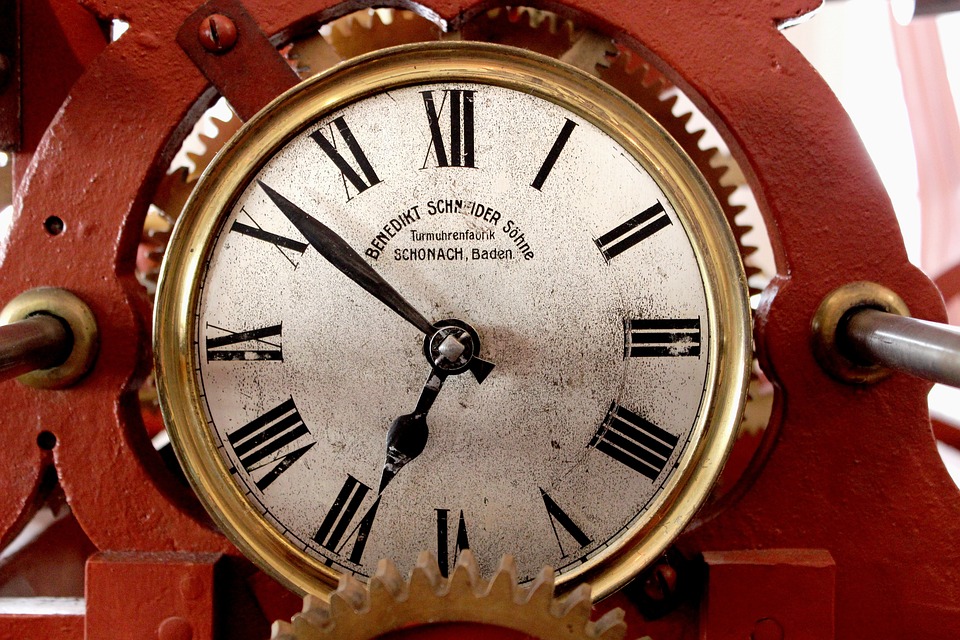
Have you ever wondered why we spend so much time studying events and people from the past? It's easy to overlook history as a collection of dates and facts, but it is much more than that.
History is a bridge that connects us to our roots, teaches us about human behavior, and provides insights to make informed decisions today. Without history, we lose context—our understanding of the present becomes shallow, and our vision for the future becomes uncertain.
In this article, we'll explore why learning about history matters. From understanding current events to fostering empathy and building better decision-making skills, history influences our lives in countless ways. By the end, you'll have a deeper appreciation for studying history and practical insights into how it impacts your everyday life.
What Is History?

History is the study of the past—events, people, cultures, and societal changes that have shaped the world we live in today. It's more than memorizing dates, names, or places; it's about uncovering humanity's stories, struggles, and triumphs across centuries.
History allows us to see the interconnectedness of events and recognize patterns that explain how societies evolve, adapt, or collapse. It examines the choices people make in the face of challenges and the consequences of those decisions, providing valuable lessons for our time.
For instance, the rise and fall of ancient civilizations like Rome and Mesopotamia highlight how governance, innovation, and resource management determine societal longevity.
The Roman Empire thrived for centuries due to its political structure and infrastructure. Eventually, it fell due to internal decay and external pressures. Mesopotamia, often called the "cradle of civilization," showcases how early urban planning and agricultural innovation laid the groundwork for complex societies. It also faced environmental and geopolitical challenges that led to its decline.
These examples remind us that even the most powerful systems are not immune to change or failure, and they invite us to reflect on how similar forces shape our present world.
Why Study History?
History provides us with vital context for understanding our world. Imagine comprehending today's political tensions, societal movements, or technological advancements without knowing their historical roots.
History allows a unique lens through which we can better understand our present and prepare for our future. It's not just a subject to study but a tool to navigate life's complexities with greater insight and perspective.
It's like trying to complete a puzzle without all the pieces—it's incomplete and misleading. Examining what came before helps us understand why things are the way they are and how we might shape them going forward.
For example, understanding the causes of modern conflicts, such as tensions in the Middle East, requires familiarity with historical decisions like the Sykes-Picot Agreement, which arbitrarily divided territories after World War I.
Similarly, the development of democratic systems is deeply rooted in historical milestones, from ancient Athenian democracy to the Magna Carta and beyond. These past events provide a foundation for analyzing current political structures and imagining improvements for the future.
Moreover, history doesn't just explain the world; it connects us to it. It helps us understand the struggles and achievements of those who came before us and allows us to empathize with their experiences.
Studying history broadens our perspective, reminding us that while societies evolve, human emotions, aspirations, and challenges often remain consistent.
Whether it's the courage of individuals during the Civil Rights Movement or the ingenuity of inventors during the Industrial Revolution, history tells us that progress is possible and that each generation has a role in shaping the future.
The Importance of Learning History
1. Understanding Current Events
History helps us make sense of the world today. Whether understanding the roots of international conflicts or grasping social dynamics, history provides essential context.
The ongoing tensions in the Middle East are inherent in historical events such as the Sykes-Picot Agreement, which divided territories without regard for cultural or ethnic groups.
2. Building Critical Thinking Skills
Studying history involves more than just absorbing facts; we evaluate sources, identify biases, and form evidence-based conclusions. These skills are transferable to everyday decision-making and problem-solving.
A study by the American Historical Association found that 87% of history graduates reported improved critical thinking skills that they applied in various fields.
3. Fostering Cultural Awareness and Empathy
Learning about different cultures and historical events broadens our perspective and fosters empathy. When we understand the struggles and triumphs of others, we become more compassionate and open-minded.
Studying the Civil Rights Movement helps us recognize ongoing challenges related to equality and justice worldwide.
4. Becoming Informed Citizens
History teaches us about the structures of government, the struggles for democracy, and the responsibilities of citizenship. It encourages individuals to participate in civic life and make informed decisions.
A Stanford University study found that history students were 65% more likely to vote and engage in civic activities.
Practical Applications of Historical Knowledge
1. Guiding Decision-Making
History often serves as a guide. Leaders, businesses, and individuals look to the past to inform their decisions.
During the COVID-19 pandemic, governments revisited historical public health responses, such as quarantine measures used during the Spanish flu, to develop strategies.
2. Shaping Policies and Governance
Governments frequently draw on historical precedents when crafting new policies. Understanding what has worked—or failed—provides valuable lessons.
The economic recovery strategies of the New Deal during the Great Depression inspired stimulus packages that combated the financial impact of COVID-19.
3. Inspiring Innovations in Science and Technology
History shows how technological advancements have shaped human progress. It helps us understand the ripple effects of innovation and provides cautionary tales about unintended consequences.
The Industrial Revolution revolutionized manufacturing and highlighted issues like worker exploitation, inspiring labor reforms.
Careers and Opportunities for History Enthusiasts
1. Educators and Researchers
Historians play a vital role in education, whether teaching in classrooms or conducting research that adds to our collective understanding.
2. Archivists and Preservationists
Historians work in museums and archives to preserve historical documents and artifacts, ensuring that future generations can access and learn from them.
The Smithsonian Institution employs archivists to maintain collections ranging from ancient manuscripts to modern digital archives.
3. Media and Communication
History graduates often work as journalists, writers, and consultants, contextualizing events and creating accurate representations in media.
Historical consultants ensure the accuracy of period dramas like Downton Abbey or films like 12 Years an enslaved person.
Overcoming Common Misconceptions About History
1. History Is Just Memorizing Facts
For many, the mention of history conjures up images of long lists of dates, names, and events to memorize for a test. This perception often makes history seem dry or irrelevant.
However, this view needs to include what history truly represents. History is not about rote memorization; it's about exploring human stories, analyzing events, and uncovering the connections between causes and consequences. It's a way to piece together the puzzle of humanity's journey, understanding what happened, why, and how it shaped our world today.
History is the most incredible story ever told. It's filled with drama, innovation, struggle, and triumph.
For example, the story of World War II isn't just about dates and battles—it's about people's resilience under unimaginable circumstances, the choices of leaders that changed the course of nations, and the societal shifts that followed. When approached as an exploration of these human stories, history becomes far more engaging and meaningful than mere facts on a page.
2. Making History Engaging
Some people find history unapproachable because of how it's often presented. But today, thanks to modern tools and creative teaching methods, history can be as engaging as any other subject.
Interactive documentaries, educational podcasts, and even historical video games make learning history immersive and entertaining. These tools allow people to hear or read about the past and experience it in dynamic ways that resonate personally.
For instance, the Smithsonian Institution uses virtual reality (VR) to transport visitors to significant historical events, such as standing in the middle of the Roman Forum or walking the streets of 18th-century America. Instead of imagining what life might have been like, users can "see" it for themselves, creating a powerful connection to the past.
Similarly, history podcasts, like Hardcore History by Dan Carlin, weave compelling narratives that bring historical events to life, blending facts with analysis in a way that feels like storytelling rather than a lecture.
Interactive museum exhibits and gamified learning experiences also appeal to a younger audience, showing them that history isn't just about the past—it's a living, breathing subject that shapes our identity and future. By combining these tools with traditional methods, educators and institutions are bridging the gap between dry historical accounts and the vivid realities they represent.
When history is presented as a journey into the lives and challenges of people who came before us, it becomes far more relatable. It reminds us that those who lived in the past were not so different from us—they faced dilemmas, made decisions, and strived for progress just as we do today. With the right approach, history transforms from a tedious subject into an inspiring exploration of human potential and resilience.
Conclusion
Studying history is not just about understanding the past—it's about shaping the future. It teaches critical thinking, fosters empathy, and helps us make informed decisions. Whether you're a student, professional, or lifelong learner, history has lessons for everyone.
Take the time to explore the stories, struggles, and triumphs that define humanity. Doing so gives you a richer understanding of the world and your place within it.
FAQs
Why is history important in school?
History helps students develop critical thinking, empathy, and civic awareness.
How does history influence our future?
Understanding history allows us to learn from mistakes and build a better future.
What careers can history majors pursue?
Careers include education, research, media, cultural preservation, and public policy.
Can history improve critical thinking?
Yes, analyzing historical events hones skills like source evaluation and evidence-based reasoning.
Why do people find history boring, and how can it be made interesting?
History becomes engaging through storytelling, interactive tools, and connections to modern issues.
History





